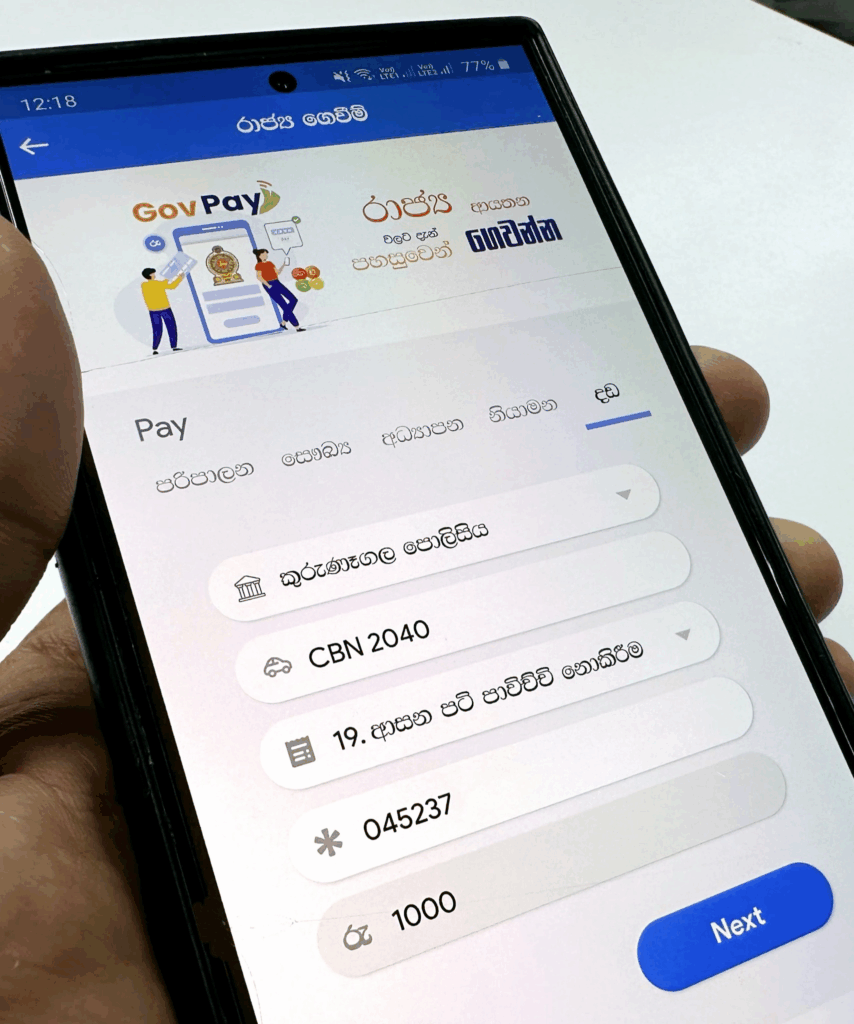GovPay, the government’s effort at streamlining digital payments, has now expanded its service to include traffic fines. The news comes just two months after the government announced it was moving forward with the GovPay project. Initially opening with 14 government institutions, GovPay now covers 28, with the Sri Lanka Police being one of the latest on the list.
Between April 11 and April 30, the pilot run of the new service will cover the Kurunegala (A6) to Anuradhapura (A9) roads. This includes Kurunegala, Doratiyawa, Melsiripura, Gokarella, Galewela, Dambulla, Madatugama, Maradankadawala, Kekirawa, Thirappane, Kawarakkulama, and Anuradhapura. During this phase, the ICTA says the system will be restricted to one vehicle per day/week to minimize misuse.
Previously, anyone fined over a traffic violation had to pay the fine at a Post Office and get a receipt. This would then be presented to the relevant police station, after which the driver’s license would be released to the offender. With GovPay, tickets can be paid online through most local banking and payment platforms, allowing drivers to get their licenses back immediately from traffic police officers.

The service addresses a long-term issue for many citizens. However, some have pointed out the need for a demerit mechanism alongside the new online system. The concern is that due to the convenience factor, some traffic violators could pay fines multiple times online with little worry for real repercussions. Only time will tell if the SL Police will include any consideration.
Postal Department concerns
The new GovPay service is already causing major revenue losses to the Postal Department, as per the United Postal Trade Unions Front (UPTUF). The UPTUF co-convener Chinthaka Bandara claims that the Postal Department stands to lose LKR 600 million to 800 million in annual revenue owing to the new GovPay feature.
Bandara claims that the Postal Department attempted to introduce an SMS notification system for traffic fine payments about two years ago. This was designed to notify both the traffic police officer and the offender in question. The system was reportedly dropped due to a lack of support from the police.
“As a union, we do not oppose the use of technological solutions for the betterment of the country, but such initiatives should not negatively impact government institutions like the Postal Department,” says Bandara. He further pointed out that it’s important to involve the Postal Department when it comes to implementing digital payment systems.
As of now, the Sri Lanka Police plans to open the GovPay service islandwide following feedback from the pilot run, though it’s unclear what that timeline will look like beyond April 30. Additionally, the GovPay website lists several government institutions it plans to integrate in the coming months, including the Department of Immigration and Emigration and the Registrar of Companies. Interestingly, it doesn’t list Sri Lanka Post.






GIPHY App Key not set. Please check settings